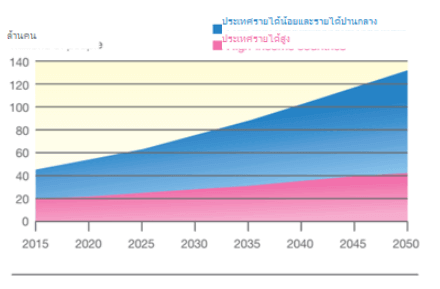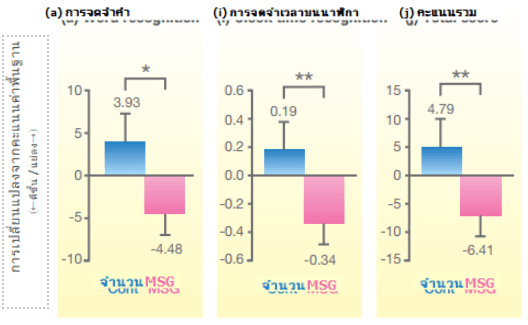The Impact of the “Elderly Boom”
As scientists and researchers continue to learn more and more about the human organism, people are living longer and healthier than ever before. Advances in medicine and healthcare have turned diseases that were once considered fatal into “chronic conditions” that can be lived with for decades. One result of this advancement is that elderly populations are increasing around the world—together with health conditions that typically beset us in our older
years, such as osteoporosis, arthritis, and of course, dementia
the World Health Organization, 60-70% of cases are caused by Alzheimer’s disease. As the world’s population increases, the prevalence of dementia is expected to increase as well—from 47 million cases in 2015 to 131 million cases in 2050
Dementia affects the entire community—not just its victims and their caregivers. Worldwide costs associated with dementia were estimated at US$818 billion in 2015, and this figure is expected to increase about 2.5 times by 20301. All possible avenues that may lead to an easing of this personal and societal burden must be explored.
Forecast Growth of Dementia Globally


MSG May Help People With Dementia
In addition to the tremendous amount of effort and investment that is put into treating or preventing dementia medicinally, doctors and nutritionists are also keenly interested in the relationship between dementia and diet. Epidemiological studies have shown that intake of some foods should be limited, whereas others seem necessary
to slow cognitive decline. For example, evidence is accumulating that dementia may be linked with insulin resistance and excessive glucose in the brain, which suggests that a specialized diet may be beneficial for these patients.
This past October, an exciting and perhaps surprising article was published in the European Journal of Clinical Nutrition. The researchers from Tottori University in Japan had conducted a study showing a potential benefit of MSG in people suffering from dementia
In this study, 159 patients with dementia were separated into two groups. In one group, 80 patients given diets with 0.26g salt added to each meal (3 meals/day), and in the other, 79 patients were given diets with 0.9g MSG added to each meal (3 meals/day). Dosage was determined such that the amount of sodium intake would be equal in each group. All of the subjects were given physical examinations, blood tests, questionnaires, and cognitive symptom tests before and after the 12-week experiment, and then 4 weeks later during a follow-up assessment.
At follow-up, the researchers found that the group of patients who ingested MSG showed superior scores on an overall cognitive ability test versus the group of patients who ingested salt (p<0.05). In addition, they scored higher in tests of “word recognition” and “clock time recognition.”
■ Effect of Monosodium L-Glutamate (Umami Substance) on

and that this contributes to a lack of enjoyment of food. In this study, adding MSG, and therefore increasing the umami taste in food, increased appetite and also increased cognitive function in elderly patients with dementia. This study indicates that the use of umami may inhibit dementia progress, and the researchers believe that further study may demonstrate a positive impact on disease onset.
Although these are very exciting and promising results, they are preliminary. The researchers noted that further investigation is required to confirm the study, and to better understand why and how MSG may have a positive impact on cognitive ability.

A Growing Body of Evidence
Dementia, and its treatment, is one of the most rigorously investigated fields of study in modern medicine. Scientists and the researchers have been studying its causes, its relationship with risk factors such as diabetes, stroke and depression, and numerous medicinal and therapeutic approaches to cure, prevent or at least slow the progression of this debilitating condition.
The findings presented in this newsletter add to a growing body of evidence that MSG, umami, and amino acids appear to have a positive impact on a variety of elderly health issues, including dementia.

As we discussed in Newsletter 8, the basic taste of umami itself might have a substantial health benefit for the elderly. More than one-third of elderly people have an impaired sense of taste, and among elderly people who are unhealthy, this proportion rises to one-half. Taste impairment is associated with reduced secretion of saliva, which makes it difficult to swallow. The combination of
Appetite loss is considered a major risk factor for dementia progression in elderly patients. It is theorized that the ability to taste umami may decrease with age,
reduced taste and difficulty swallowing can contribute to a decrease in appetite, which in turn can lead to weight loss and malnutrition. However, the taste of umami increases both the palatability of food and salivation, which is expected to increase appetite and regulate weight gain.

Furthermore, as covered in Newsletter 5 in this series, sarcopenia, the age-related loss of skeletal muscle mass and strength, is another common health issue that can rob the elderly of their health and independence. Our "Amino L40", which is a blend of 9 essential amino acids that are vital to muscle protein synthesis, has been shown to increase muscle mass, muscle strength, and walking speed in elderly individuals when combined with an exercise program.
Ajinomoto Co., Inc.: Leveraging Science for Human Beings
More and more research is being performed on amino acids, umami, and MSG, contributing to a growing base of literature that suggests health benefits in the elderly. We will continue to follow these developments with great interest in our continuing effort to help everybody to eat well and live well.
About Ajinomoto Co., Inc.
The Ajinomoto Group is a global company with specialties in the business of food and amino acids, guided by our leading-edge bioscience and fine chemical technologies.
Based on the corporate message “Eat Well, Live Well.”, we have been scientifically pursuing the possibilities of amino acids in supporting the healthy lives of people all around the world. We aim for future growth and continuous contribution to greater wellness by creating value through sustainable and innovative solutions for communities and society.
The Ajinomoto Group has offices in 35 countries and regions, and sells products in more than 130 countries and regions. In fiscal 2018, sales were 1.1274 trillion yen (10.1 billion U.S. dollars). To learn more, visit http://www.ajinomoto.com
References:
- https://www.ncbi.nlm.nih.gov/pmc/articles/PMC5732407/
- M. Kouzuki, M. Taniguchi, T, Suzuki, et al. Effect of Monosodium l-Glutamate (Umami Substance) on Cognitive Function in People with Dementia. Eur J Clin Nutr 73, 266–275 (2019)
- Potential Benefits of MSG
International Glutamate Information Center https://glutamate.org/benefits/umami-taste-important-for-overall-health/BBC
https://www.bbc.com/news/health-30952637
Umami: The Science and Lore of Healthy Eating (The Academia of Nutrition and Dietetics, US)
https://www.andeal.org/vault/2440/web/Umami_Science_and_Lore_of_Health_Eating_201708.pdf
- Helps control appetite
U. Masic & M. R. Yeomans: "Umami flavor enhances appetite but also increases satiety" Am. J. Clin. Nutr., 100, 532 (2014).
- Helps with swallowing/Helps prevent taste disorders
T. Sasano "Important Role of Umami Taste Sensitivity in Oral and Overall Health" et al., Curr Pharm. Des. 20: 2750-2754 (2014)
https://flavourjournal.biomedcentral.com/articles/10.1186/2044-7248-4-10
- Contributes to oral hygiene/Accelerates digestion
H. Zai, M. Kusano, H. Hosaka, Y. Shimoyama, A. Nagoshi, M. Maeda,
O. Kawamura & M. Mori: "Monosodium L-Glutamate Added to a High-Energy, High-Protein Liquid Diet Promotes Gastric Emptying" Am. J. Clin. Nutr.,89, 431 (2009).
H. Uneyama et al. “Physiological Role of Dietary Free Glutamate in the Food Digestion” Asia Pac. J Clin. Nutr. 17(S1) 372-375 (2008)
- Helps reduce salt intake
S. Yamaguchi et al. Journal Food Sci 49(1) 82-85 (1984) Newsletter Vol.9
,

